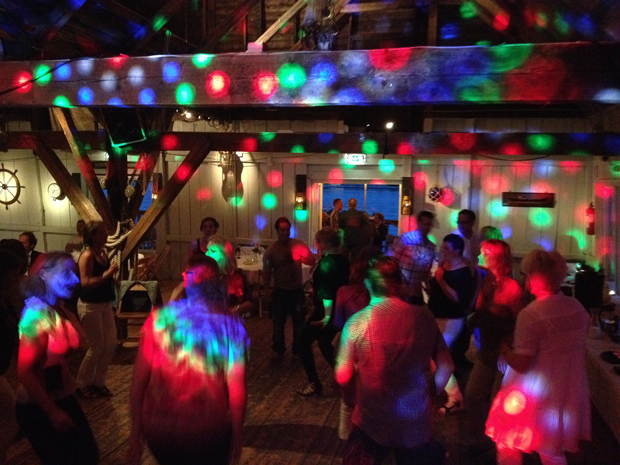150 Boys and Girls Arrested in Crackdown on Co-ed Parties

One hundred fifty young girls and boys were arrested for attending an “inappropriate mixed-gender” birthday party near the city of Tehran, according to an announcement by the police commander of western Tehran province. The arrests are the latest in an ongoing crackdown on mixed-gender parties that has resulted in the detainment of scores of young people in the past few months.
Colonel Mohsen Khancherli claimed on July 24, 2016 that the partygoers were planning to participate in a video clip produced for “foreign satellite channels” by a music studio located next to the garden where the party occurred in an undisclosed location west of the capital.
The studio has been shut down and its managers have been “dealt with,” said Khancherli, who also warned that gardens and halls used for special events in western Tehran are under “complete surveillance” by his forces.
In Qazvin, east of Tehran, thirty-five girls and boys arrested at a private graduation party were lashed 99 times for “dancing and foot-stomping” on May 26, 2016 according to Qazvin’s Prosecutor Esmail Sadegh Niaraki, who added that the sentences were carried out the same day they were issued. “We hope this will serve as a lesson for those who break social norms,” he said.
The United Nations has declared lashing a cruel and inhuman punishment tantamount to torture.
The latest mass arrest is part of an ongoing nationwide crackdown on mixed-gender parties, which are illegal in Iran. While all mixed-gender parties are technically illegal in Iran, the authorities tend to especially target events attended by youth in the hot summer months.
President Hassan Rouhani promised to lessen the policing of people’s personal lives during his presidential election campaign in 2013, but has failed to reign in hardliners who support the policy and dominate the country’s security forces.
“People should feel that their rights and freedoms are respected,” said Rouhani during a speech on June 28, 2016. “One of the responsibilities of the Judiciary, as clearly stated in the Constitution, is to resurrect people’s rights and spread justice and freedom.”
On July 22, just two days before the latest mass arrest, 50 girls and boys were detained at a party in Absard, also in western Tehran. Mojtaba Mohammadi, a local prosecutor, said the authorities—who learned about the party by monitoring messages on social media—confiscated 25 liters of alcoholic beverages (illegal in Iran) from the location.
On June 11, more than 20 partygoers were arrested in the southeastern city of Kerman. Dadkhoda Salari, the prosecutor of Kerman, said the action was taken as part of a strategy to “raise public security” and confront “those who break social norms and disturb public peace.”
Seven unidentified “movie actors” were also arrested at a “nighttime party” where “80 bottles of alcoholic drinks” were confiscated on May 4, 2016 in the affluent Sa’adatabad neighborhood in northern Tehran.
“People’s freedom cannot be limited with directives and unilateral actions by certain agencies,” said Rouhani during a speech on April 20, 2016. “Even the government and the Judiciary cannot put a limit on people’s actions. Only the law can set a certain framework for freedom.”






